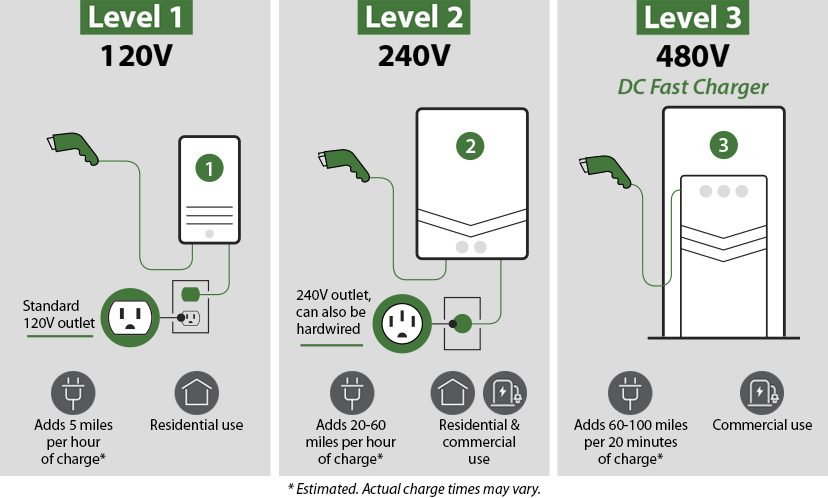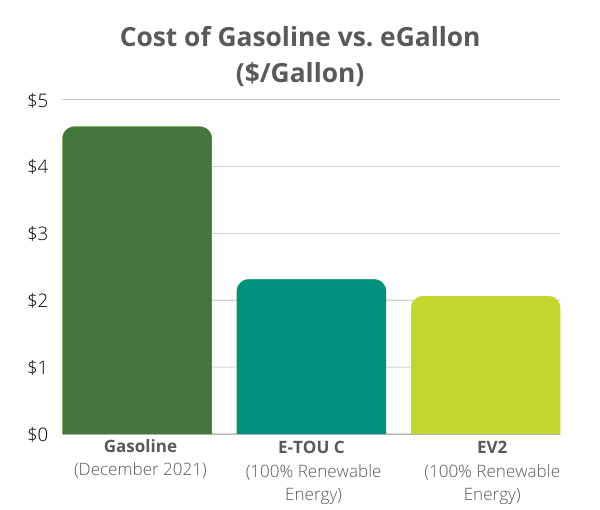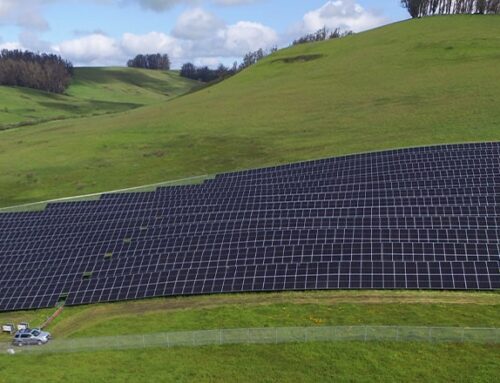In MCE’s Ask an Expert Series MCE specialists take a deep dive answering questions and sharing insights about a specific topic or program. Do you have a burning question about energy or MCE’s work? Let us know at communications@mceCleanEnergy.org.
In December 2021 gas prices jumped to $4.59 a gallon ⎯ a whopping increase of 47% in only a year. For drivers of gas-powered vehicles (also known as internal combustion engines, or ICE) this dramatic rise in fueling costs hasn’t gone unnoticed. Luckily, alternatives to gas vehicles offer significantly reduced use and maintenance costs. In this blog, we explore the cost of charging an electric vehicle (EV) at home.
Cost to Install At-Home Charging
One of the major advantages of owning an EV is the ability to fuel your vehicle at home. Simply plug in and let the charger go.
Most EVs come with a standard L1 charger, which yield roughly 5 miles per hour charged, or around 50 miles of range after a full night of charging. The average purchase and installation cost to upgrade to a L2 charger is roughly $900-1,600, depending on your home’s electrical capacity and access to existing outlets. Most L2 chargers yield 20 miles per hour charged.

Level 1 (L1) charging: A standard outlet, like for your mobile phone
Level 2 (L2) charging: An outlet with an upgraded electrical capacity, like for your dryer
Direct Current Fast Charging: Not practical for home charging (for commercial use)
Cost to Charge an EV
If you don’t have an EV, you may be wondering about home charging costs. Let’s use the example of a 2021 Chevy Bolt, which has a 65 kilowatt-hour battery. For a Deep Green (100% renewable energy) customer on a standard residential Time-of-Use (E-TOU-C) rate, it costs $0.27 per kilowatt-hour when charging during off-peak hours (9 p.m. – 4 p.m. the next day) . At this rate, it costs $17.78 to charge the Bolt’s battery to its full range of 259 miles.
MCE offers a residential electricity rate plan for EV drivers called EV2. This rate may be appropriate for EV owners that can charge their vehicles and use major appliances during off-peak hours (midnight–3 p.m.), when electricity is less expensive. To fully charge the Bolt with 100% renewable energy on the EV2 off-peak rate, it costs just $15.83.
Let’s compare this cost with a gas-powered vehicle. The U.S. Department of Energy’s “eGallon converter” compares the cost of fueling an EV to the price of a gallon of gasoline. For the standard residential Time-of-Use rate, the cost of an eGallon is $2.30. For the EV2 rate, it’s only $2.05 per eGallon! For reference, the last time a gallon of gas in California was under $2.05 was January 2005. Thus, gas-powered vehicles cost 2.25 times more to fuel than EVs.

Further Savings
EV drivers also save on maintenance costs for regular upkeep. EVs don’t require oil changes and have fewer engine parts. The savings from maintenance costs compared to gas-powered vehicles can be even more significant than the savings from fuel costs. Combine the savings with the incentives to buy or lease an EV, and it’s significantly cheaper to own and operate an EV than a gas-powered vehicle.






